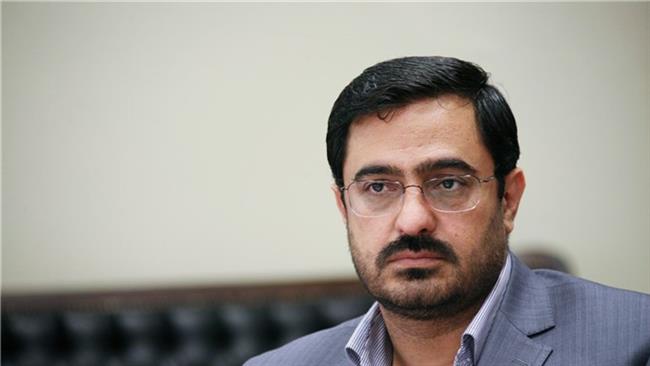May 26, 2018

Former Tehran prosecutor Saeed Mor-tazavi, who was behind some of the most notorious prison deaths in Iran the last decade, was apprehended April 22 and transferred to Evin prison, where he will serve a two-year sentence for being an accessory to murder in 2009.
On April 12, the spokesman for Iran’s Judiciary, Gholam-Hossain Mohseni-Ejai, when asked about Mortazavi, said, “His verdict has been issued, but unfortunately we haven’t been able to find him.” Mohseni-Ejai’s comments instantly went viral, with Iranians mockingly posting “Wanted” pictures of Mortazavi on social media. Some posters were even tacked up on walls along city streets.
That a former high government official, one who was often still seen in attendance at official gatherings or Friday prayers, could not be found was laughable to most Iranians. He was apprehended over the weekend in a village in Mazandaran province. The authorities did not say how they found him or whom he was living with.
Mortazavi had come to symbolize the immunity that the Judiciary and hard-line officials enjoy in Iran.
A Majlis panel held Mortazavi responsible for three deaths in Kahrizak prison following the 2009 protests over the presidential election. He has also been linked to the 2003 death of Canadian-Iranian photographer Zahra Kazemi and to financial improprieties at Iran’s Social Security Organization.
Mortazavi’s conviction was specifically for the death of Mohsen Ruh-ol-amini, the son of an adviser to conservative presidential candidate Mohsen Rezai in 2009. Under the orders of Mortazavi, Ruh-ol-amini and others were sent to the Kahrizak detention center, where, along with other detainees, he was abused and eventually died of his wounds.
Mortazavi remained defiant to the end, having once claimed during the appellate process via a statement (he refused to personally attend), “Under this government, I will never go to prison.”
Despite Mortazavi’s arrest, Iranian activists and social media users are not necessarily celebrating the application of justice in this case. Mortazavi is believed to have been sent to Ward 241, a more comfortable part of Evin prison, where Hamid Baqai, another official from the Mahmud Ahmadi-nejad Administration, is serving a prison sentence for corruption.
Mehdi Hashemi, the son of former President Ali-Akbar Hashemi Rafsanjani, is also believed to be in this section serving out his corruption sentence. BBC Persian radio quipped that Mortazavi was being sent to “Evin Hotel.”
Many others compared Mortazavi’s light sentence with those of the activists who were arrested during the 2009 protests and sentenced to up to 10 years in prison. Many of those activists were also later barred from working as journalists or activists and had their careers completely derailed.


















